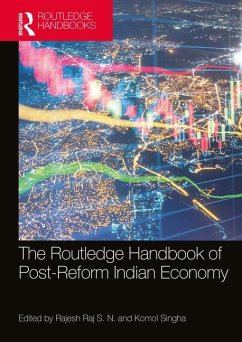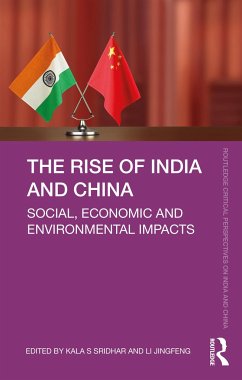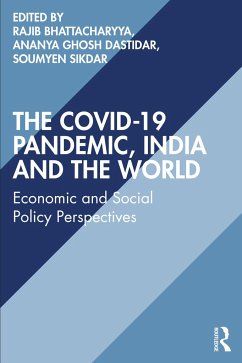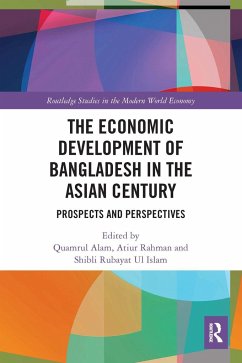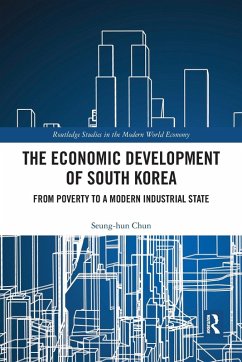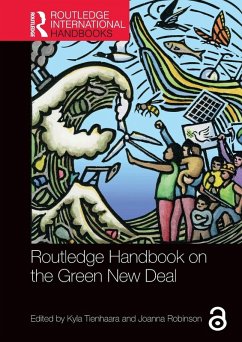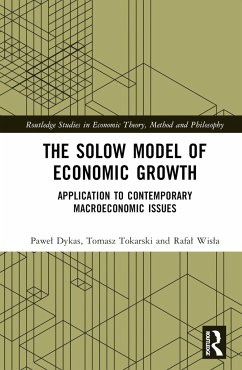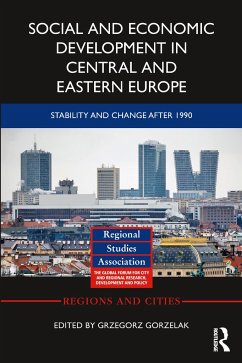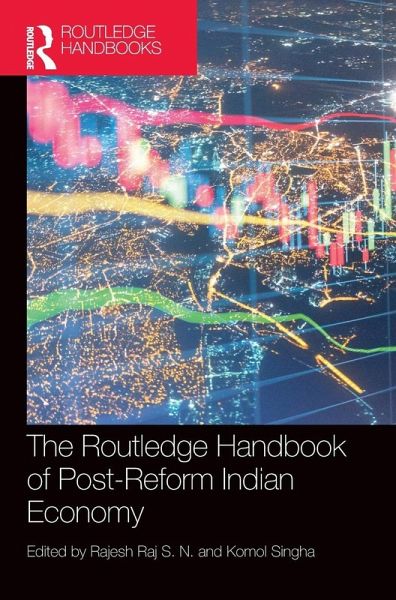
The Routledge Handbook of Post-Reform Indian Economy

PAYBACK Punkte
115 °P sammeln!
This handbook presents a comprehensive study of the post-reform Indian economy, three decades after the economic liberalization started in the early 1990s.It studies the broad range of changes that were introduced in the reforms era, assessing their impact on sectors like manufacturing, agriculture, banking and finance, among others. It also assesses the performance of these sectors amid globalization and the socio-economic shifts in the country. The volume evaluates the contribution of the reforms to social transformation, social inclusion, sustainability and human development, and deliberate...
This handbook presents a comprehensive study of the post-reform Indian economy, three decades after the economic liberalization started in the early 1990s.
It studies the broad range of changes that were introduced in the reforms era, assessing their impact on sectors like manufacturing, agriculture, banking and finance, among others. It also assesses the performance of these sectors amid globalization and the socio-economic shifts in the country. The volume evaluates the contribution of the reforms to social transformation, social inclusion, sustainability and human development, and deliberates on the gains, blind spots and limitations. With contributions from scholars across the country, case studies and comparative analyses that draw on data analysis, econometric evidence and historical sensibility, this is an authoritative volume on the reforms of the 1990s and their impact on the Indian economy and people.
Topical and the first of its kind, the book will be a useful resource for scholars and researchers of economics, development studies, political economy, management studies, public policy and political studies.
It studies the broad range of changes that were introduced in the reforms era, assessing their impact on sectors like manufacturing, agriculture, banking and finance, among others. It also assesses the performance of these sectors amid globalization and the socio-economic shifts in the country. The volume evaluates the contribution of the reforms to social transformation, social inclusion, sustainability and human development, and deliberates on the gains, blind spots and limitations. With contributions from scholars across the country, case studies and comparative analyses that draw on data analysis, econometric evidence and historical sensibility, this is an authoritative volume on the reforms of the 1990s and their impact on the Indian economy and people.
Topical and the first of its kind, the book will be a useful resource for scholars and researchers of economics, development studies, political economy, management studies, public policy and political studies.




